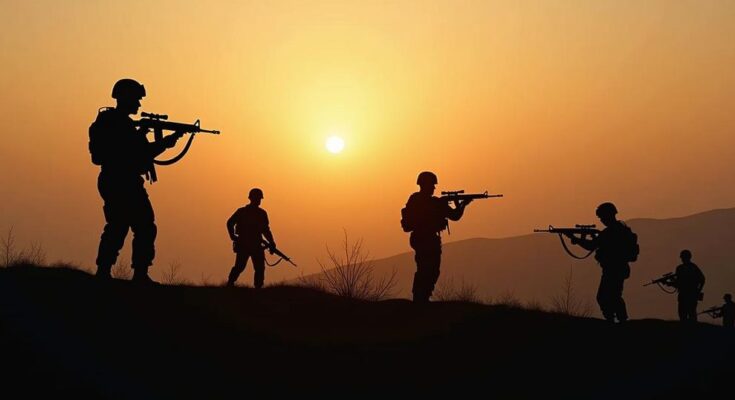On Tuesday, Israel launched limited ground operations in southern Lebanon targeting Hezbollah, marking a new front in the yearlong conflict. U.S. support for the Israeli operations has been reaffirmed, while Hezbollah prepares to continue its resistance following the death of its leader. Lebanon’s military is adjusting its forces in response, and UN peacekeepers face challenges due to ongoing hostilities.
In a significant escalation of its military efforts, the Israeli Defense Forces (IDF) commenced limited ground operations in southern Lebanon early Tuesday, targeting specific sites associated with the Hezbollah militant group. This development marks the opening of a new front in the ongoing conflict between Israel and its adversaries aligned with Iran. According to military statements, the operations are described as localized and targeted raids against Hezbollah installations. U.S. Defense Secretary Lloyd Austin has expressed support for Israeli Defense Minister Yoav Gallant’s initiative to dismantle the infrastructure utilized for attacks along the border with Lebanon. Furthermore, Israeli Prime Minister Benjamin Netanyahu issued a stern warning to Iran following an airstrike that resulted in the death of a prominent leader of Hezbollah, a group heavily backed by Tehran. In response to this escalating situation, Hezbollah’s deputy leader, Naim Qassem, announced the group’s intention to appoint a new leader and persist in its resistance against Israel, following the recent loss of Hassan Nasrallah. As tensions rise, the Israeli military had previously communicated its actions to the United States, which confirmed that the IDF had initiated ground operations aimed at Hezbollah. Additionally, Israel has restricted access to three communities near the Lebanese border by designating them as a closed military zone. This strategic military maneuver prompted the Lebanese Armed Forces to reposition and regroup their forces in light of the perceived threat of an imminent Israeli ground invasion, as reported by a Lebanese military official. Concurrently, United Nations peacekeepers operating in Lebanon have faced challenges in conducting patrols due to the intensity of the ongoing Israeli strikes and Hezbollah’s retaliatory rocket fire targeting Israeli territory.
The recent escalation of hostilities in the region underscores the long-standing conflict between Israel and Hezbollah, a paramilitary group based in Lebanon that receives substantial support from Iran. The current situation is exacerbated by the broader geopolitical ramifications of the ongoing war, with both sides engaging in military operations that could lead to further instability in an already volatile region. The involvement of major powers such as the United States adds another layer of complexity to the dynamics of the conflict.
In conclusion, the Israeli military’s initiation of ground operations in southern Lebanon represents a critical juncture in the ongoing conflict with Hezbollah. The support from the United States underscores the international implications of this military engagement, while Hezbollah’s response highlights the group’s resilience and commitment to its objectives. The developments warrant close monitoring as they have the potential to escalate tensions further in the region.
Original Source: www.france24.com




